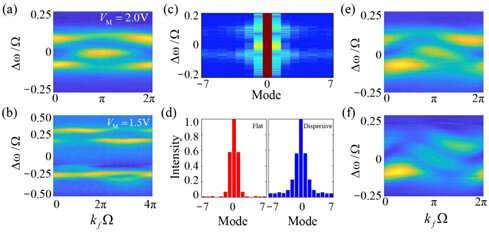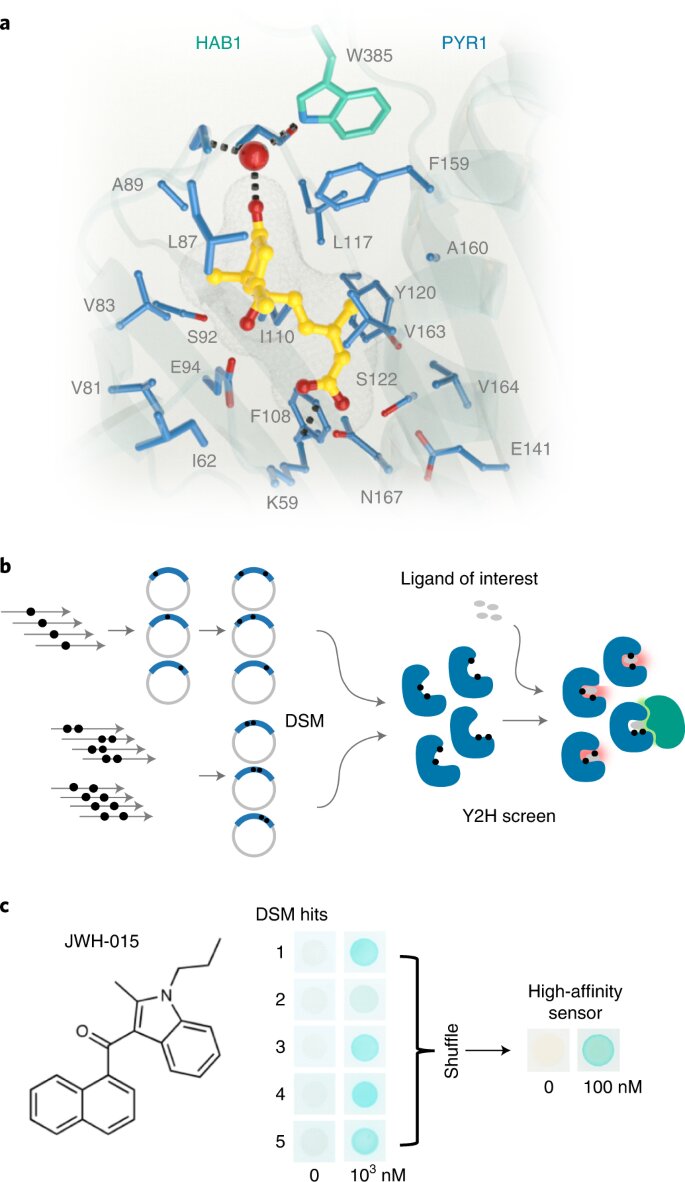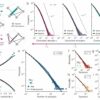Synthetic dimensions in photonics offer exciting new ways to manipulate light, to study physical phenomena with exotic connectivities, and explore higher-dimensional physics. Dynamically modulated ring resonator systems, where resonant modes are coupled to construct a synthetic frequency dimension, can provide great experimental flexibility and reconfigurability.
Construction of complex synthetic lattices, such as Lieb lattices and honeycomb lattices in multiple rings, will lead to rich opportunities for exploring exotic physical phenomena that currently exist only in the theoretical realm, such as parity-time phase transition in non-Hermitian systems and higher-order topologies. Toward experimental construction of more complicated multiring lattices, creating synthetic frequency space systems in two rings of different lengths is an important step.
As reported in Advanced Photonics, a team of researchers from Shanghai Jiao Tong University recently constructed a synthetic stub lattice along the frequency dimension. They used two coupled rings of different lengths, while the larger ring underwent dynamic modulation. Their study, which was the first such experimental demonstration, observed and verified the intrinsic physical properties of such lattices, especially the natural existence of the flat (dispersionless) band. They also observed the mode localization near the flat band. Such flat bands in the synthetic space can further be modified by introducing long-range couplings in the modulation, which enables transitions from flat to non-flat bands, for dynamic control of light.

(a)-(b) Measured time-resolved band structure readout from the drop-port output of the excited ring, which exhibits intensity projections of the band onto superpositions of different resonant modes. (c) Experimentally resolved resonant mode spectra as a function of frequency detuning and (d) the corresponding mode distributions of two selected input frequencies located at the flat and dispersive bands, respectively. (e)-(f) Observations of flat to non-flat band transitions achieved by adding long-range couplings. © Advanced Photonics (2022). DOI: 10.1117/1.AP.4.3.036002
In addition, by selectively choosing the input and output ports for excitations and transmission measurements, they were able to observe distinct band structure patterns. Such results differ remarkably from previous works on flat-band physics. They reveal that signals in the system can carry optical information from superposition modes in synthetic frequency dimensions.
This demonstration of exotic light manipulation may enable essential applications of optical communications in fiber-based or on-chip resonators. The work is also potentially a significant milestone: Construction of the stub lattice in two coupled rings of different lengths proves the experimental feasibility of connecting multiple rings of different types to construct complex lattices beyond line or square geometry in the synthetic space. The authors anticipate that their results may pave the way for future experimental realization of previous theoretical proposals.
More information:
Guangzhen Li et al, Observation of flat-band and band transition in the synthetic space, Advanced Photonics (2022). DOI: 10.1117/1.AP.4.3.036002
Citation:
Dynamic ring resonator offers new opportunity in synthetic frequency dimension (2022, June 21)



